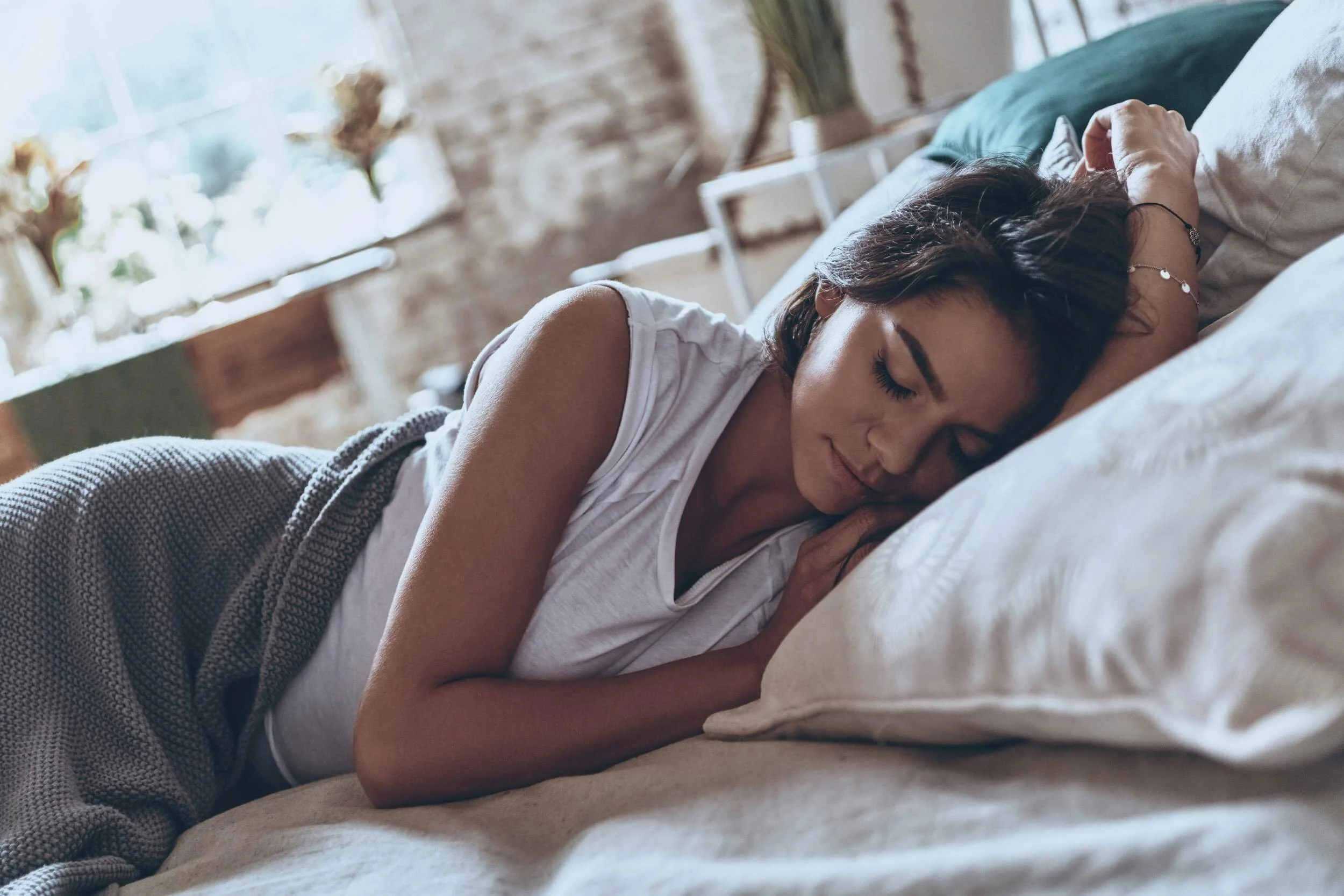Sleep Chronotypes and Homeopathy: A New Path to Restful Slumber
When Benjamin Franklin wrote the phrase, "Early to bed and early to rise, makes a man [or woman] healthy, wealthy, and wise," he probably didn't realize this saying would be used as the secret formula to success and good health for coming generations. But anyone who has experienced the grogginess brought on by an alarm clock wailing in the deep void of pre-dawn hours, or the second wind of energy that strikes at midnight, knows one size doesn't always fit all in the realm of sleep.
Since sleep varies from person to person, it can be difficult to determine whether a variation in sleep is a problem. But if you don't know what your sleep pattern looks like, you won't even know to start looking. A quick look at the past few years of sleep research will tell you that even the scientific community can't agree on the best sleep schedule, which begs the question: Is there a "right" time to sleep?
That, however, is not the question we're here to answer today. Since we know that quality sleep is important for everyone and also highly individual, that's where we're starting, with a look at common sleep patterns, often referred to as chronotypes.
Chronotypes: Understanding Your Body's Clock
Over time, organisms equipped themselves with internal, self-sustained, and resettable rhythms called circadian rhythms. Circadian rhythms help us anticipate and adapt to the changing environment throughout the day, such as a light-dark cycle that repeats every 24 hours. In recent years, there has been a growing interest in research to discover the changes in human sleep patterns and their adaptation to more modern lifestyles, and what it means for overall health.
Understanding chronotypes starts with understanding the basics of circadian rhythm: the internal clock that influences biological processes like hunger, sleep, and energy levels. Your chronotype is thought to be the factor that determines when those processes occur throughout the day. There are several views of chronotypes, but the basic understanding is that there are three types:
Morning Chronotype (Lark): These people wake up bright and early, usually around 4 or 5 am, and start their day with a burst of productivity. But as the afternoon rolls around, they begin to wind down. The real challenge comes with balancing an active social life in the evenings, as they're often ready for bed as early as 8:30 or 9 pm.
Day Chronotype (Dove): Those who embrace the rhythm of nature by waking up with the sunrise (around 6-8 am) and winding down with the sunset. This chronotype has two productive periods, usually mid-morning and afternoon. They have an easy time balancing an evening social life and a bedtime between 10 and 11 pm. It's worth noting that this is the most common chronotype, and the world tends to function on this schedule.
Evening Chronotype (Night Owl): People in this category prefer waking up later in the morning, around 8-10 am, and often require some time to shake off the grogginess. Their peak productivity usually happens in the early afternoon and again later in the evening, around 8 pm. Evening socializing is no problem for them as they typically start winding down around 11 pm and are ready for bed between midnight and 2 am.
Rise and Shine...Or Not?
According to the chronotype model, the early bird routine may not be inherently healthful for everyone, despite Benjamin Franklin’s insistence. And while you would likely find devoted believers on both sides, a look at sleep studies does show a clear difference in sleep patterns.
Getting consistent quality sleep is important to overall health, so whether you determine that the best option is tailoring your day to the sleep cycle that feels most natural or finding tools to address sleep disruptions, getting to know your sleep chronotype will empower you to make choices that improve your overall health and wellness.
The Harmony of Homeopathy and Sleep
So, how does homeopathy fit with this? Homeopathy is a long-established medical system that was developed in Germany more than 200 years ago that examines the individual as a whole, acknowledging that subtle differences matter. Differences like when and how long you sleep, your energy levels throughout the day, and your most productive time of day can give important information about how your body is functioning.
With homeopathy, the focus isn't on a one-size-fits-all solution, but on a remedy that mirrors your specific sleep disruptions and patterns. For instance, a homeopathic preparation might address the restlessness of an overactive mind for one individual, while aiding another whose sleep is fragmented by environmental changes.
By understanding your sleep patterns, we can select personalized treatments to realign your internal clock and ensure you're functioning at your best.
Conclusion
Your sleep is as unique as you are, but there is one truth we can all agree on: sleep lies at the core of overall health. With homeopathy, your sleep can get the personalized care and attention it deserves, so you can get the rest you deserve. With its gentle yet effective remedies, homeopathy offers a natural and sustainable solution to help you achieve deep, restorative sleep, allowing you to wake up refreshed and ready to embrace each day with renewed energy and vigor.
Sources
Bell IR, Howerter A, Jackson N, Aickin M, Baldwin CM, Bootzin RR. Effects of homeopathic medicines on polysomnographic sleep of young adults with histories of coffee-related insomnia. Sleep Med. 2011 May;12(5):505-11. doi: 10.1016/j.sleep.2010.03.013. Epub 2010 Jul 29. PMID: 20673648; PMCID: PMC2972403.
Complementary and alternative medicine. Insomnia | Complementary and Alternative Medicine St. Luke’s Hospital. (n.d.). https://www.stlukes-stl.com/health-content/medicine/33/000096.htm
Ngan A, Conduit R. A double-blind, placebo-controlled investigation of the effects of Passiflora incarnata (passionflower) herbal tea on subjective sleep quality. Phytother Res. 2011 Aug;25(8):1153-9. doi: 10.1002/ptr.3400. Epub 2011 Feb 3. PMID: 21294203.
Satyam Chauhan Adan, A., … Cloninger, C. R. (2023, March 1). Beyond sleep: A multidimensional model of Chronotype. Neuroscience & Biobehavioral Reviews. https://www.sciencedirect.com/science/article/abs/pii/S0149763423000830
Zou, H., Zhou, H., Yan, R., Yao, Z., & Lu, Q. (2022). Chronotype, circadian rhythm, and psychiatric disorders: Recent evidence and potential mechanisms. Frontiers in Neuroscience, 16. https://doi.org/10.3389/fnins.2022.811771; https://www.ncbi.nlm.nih.gov/pmc/articles/PMC9399511/
Haven, H. (2024, January 12). Soothing Slumbers: Exploring Homeopathic Remedies for a restful sleep - Homeopathy Haven. Homeopathy Haven. https://homeopathyhaven.com/all/soothing-slumbers-exploring-homeopathic-remedies-for-a-restful-sleep/
Montaruli, A., Galasso, L., Caumo, A. et al. The circadian typology: the role of physical activity and melatonin. Sport Sci Health 13, 469–476 (2017). https://doi.org/10.1007/s11332-017-0389-y
Chronotype: What it is and how to make it work for you. (2021, September 30). https:// www.risescience.com/blog/chronotype
Your biological clock: There’s a right time to do everything. (2021, July 15). https://www.risescience.com/blog/biological-clock
Suprachiasmatic nucleus and melatonin: Reciprocal interactions and clinical correlations: Neurology: Vol 71, No 8. (n.d.). Neurology. https://www.neurology.org/doi/10.1212/01.wnl.0000324283.57261.37
Pacheco, D., & Pacheco, D. (2023, November 16). Chronotypes. Sleep Foundation. https://www.sleepfoundation.org/how-sleep-works/chronotypes
Breus, M. (n.d.). Learn the perfect hormonal time to sleep, eat and have sex | Michael Breus | TEDxManhattanBeach [Video]. TED Talks. https://www.ted.com/talks/michael_breus_learn_the_perfect_hormonal_time_to_sleep_eat_and_have_sex



